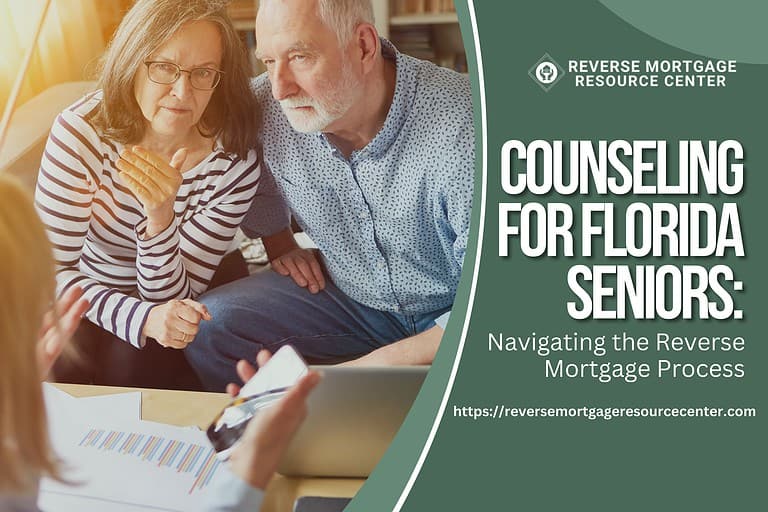Ensuring a Legacy: Reverse Mortgages and Estate Planning
As seniors navigate the complexities of financial planning during retirement, ensuring a legacy for their heirs becomes a paramount concern. One innovative tool that has gained prominence in recent years is the reverse mortgage. In this article, we will explore the integration of reverse mortgages into comprehensive estate planning strategies. By preserving home equity for heirs while meeting immediate financial needs, seniors can secure a lasting legacy for their loved ones.
Understanding Reverse Mortgages
A Brief Overview
A reverse mortgage is a financial instrument specifically designed for homeowners aged 62 and older. Unlike traditional mortgages, where homeowners make monthly payments to a lender, a reverse mortgage allows seniors to convert a portion of their home equity into income tax-free funds. The unique feature of this arrangement is that repayment is typically deferred until the homeowner no longer uses the home as their primary residence.
Preserving Home Equity for Heirs
One of the primary concerns seniors face when considering reverse mortgages is the potential impact on their heirs’ inheritance. However, when strategically incorporated into estate planning, reverse mortgages can be a powerful tool for preserving and even enhancing the legacy left for loved ones.
Integrating Reverse Mortgages into Estate Planning
Meeting Immediate Financial Needs
Supplementing Retirement Income
Many seniors find themselves in a position where their retirement income may not be sufficient to cover all their expenses. By leveraging a reverse mortgage, seniors can supplement their retirement income, providing financial stability and peace of mind.
Funding Long-Term Care
As healthcare costs continue to rise, the need for long-term care becomes a significant consideration for seniors. Reverse mortgages can be utilized to fund long-term care insurance or cover medical expenses, ensuring that the financial burden does not jeopardize the legacy intended for heirs.
Legal Considerations and Best Practices
Consultation with Estate Planning Professionals
Before incorporating a reverse mortgage into an estate plan, it is crucial for seniors to consult with experienced estate planning professionals. These experts can assess individual circumstances, ensuring that the chosen strategy aligns with broader financial goals and legal requirements.
Establishing a Living Trust
In many cases, seniors opt to establish a living trust as part of their estate planning. This legal tool can help streamline the distribution of assets, including those tied to a reverse mortgage. By placing the home within a living trust, heirs may avoid the probate process, expediting the transfer of assets.
Communication with Heirs
Transparent communication with heirs is essential when integrating reverse mortgages into an estate plan. Providing a clear understanding of the financial strategy and its implications can alleviate concerns and foster a collaborative approach to legacy planning.
Potential Pitfalls and Safeguards
Interest Accrual and Equity Preservation
While reverse mortgages offer financial flexibility, it is crucial to consider the long-term impact on home equity. Interest accrues on the outstanding loan balance, potentially reducing the inheritance left for heirs. Estate planners should work to strike a balance between meeting immediate financial needs and preserving home equity for future generations.
Repayment Strategies
Seniors and their estate planning professionals should carefully evaluate repayment strategies for reverse mortgages. Whether through the sale of the home, life insurance proceeds, or other means, having a well-defined plan ensures a smooth transition and minimizes surprises for heirs.
Tax Implications
Understanding the tax implications of reverse mortgages is vital for seniors seeking to maximize their financial legacy. While the loan proceeds from a reverse mortgage are generally not taxable, the interest that accrues on the loan may have tax consequences. Seniors should work closely with tax professionals to navigate the complex landscape of tax laws and regulations associated with reverse mortgages.
Market Trends and Innovations
Keeping abreast of market trends and innovations in the realm of reverse mortgages is essential for seniors looking to optimize their estate planning strategies. New products and features may emerge, offering enhanced flexibility and benefits. Staying informed allows seniors to adapt their plans to leverage the most advantageous options available.
The Future of Reverse Mortgages in Estate Planning
As the financial landscape evolves, so too will the role of reverse mortgages in estate planning. Continued research and development in financial instruments tailored to seniors’ needs may unlock even more possibilities. Estate planning professionals and seniors alike should remain vigilant, embracing innovative solutions to ensure a legacy that withstands the test of time.
REVERSE MORTGAGE RESOURCE CENTER ~LIVE LIFE ON YOUR TERMS~
Our Lending Team has been serving our clients since 2004. We are passionate about serving our clients with integrity to help them achieve their financial goals.






